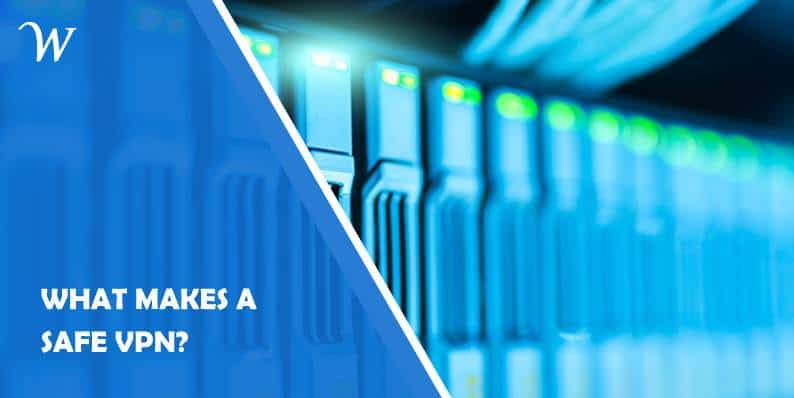Virtual private networks (VPNs) are popular tools for protecting online privacy and security. By encrypting internet traffic and routing it through a private network, VPNs can help users protect sensitive information, bypass censorship, and access geo-restricted content. However, not all VPNs are created equal, and it’s important to choose a safe VPN that provides reliable privacy and security features. In this article, we’ll take a look at what makes a safe VPN and how to choose the best one for your needs.
1. Encryption
Encryption is one of the most important features of a safe VPN. Encryption works by scrambling data so that it cannot be intercepted and read by unauthorized parties. A safe VPN, such as Surfshark VPN, will use strong encryption protocols like AES-256 and SHA-256 to protect your internet traffic. It’s important to note that encryption alone does not guarantee privacy and security; a VPN must also have a strict no-logs policy to ensure that your online activity cannot be traced or monitored.
2. No-Logs Policy
A strict no-logs policy is essential for a safe VPN. A no-logs policy means that the VPN provider does not store any information about your online activity, such as websites visited or files downloaded. This ensures that even if a VPN is hacked or subpoenaed, there is no sensitive information to be found. A safe VPN will clearly state its no-logs policy and will have been independently audited to verify its claims.
3. Server Locations
The location of a VPN’s servers is an important factor in determining its safety. A safe VPN will have servers in countries with strong privacy laws and a history of respecting online privacy, such as Switzerland, Panama, and Iceland. It’s important to note that some countries require VPN providers to store user data or share it with government agencies upon request, so it’s best to avoid VPNs with servers in those countries.
4. Kill Switch
A kill switch is a feature that automatically disconnects your internet connection if your VPN connection drops. This is important because if your VPN connection drops, your internet traffic could be exposed, potentially compromising your online privacy and security. A safe VPN will have a kill switch feature that is easy to use and reliable.
5. DNS Leak Protection
A DNS leak occurs when your computer sends DNS requests outside of the encrypted VPN tunnel, potentially revealing your real IP address and location. A safe VPN will have DNS leak protection to ensure that all DNS requests are routed through the VPN tunnel. It’s important to test for DNS leaks periodically to ensure that your VPN is working properly.
6. Protocols
VPNs use different protocols to encrypt and transmit data. Some of the most common protocols include OpenVPN, L2TP/IPSec, and PPTP. OpenVPN is generally considered the safest and most reliable protocol, while PPTP is the least secure. A safe VPN will use a protocol that is appropriate for your needs and provides strong encryption.
7. Speed
While security and privacy are important considerations when choosing a VPN, speed is also a key factor. A slow VPN can be frustrating and may even discourage you from using it. A safe VPN will provide fast and reliable connection speeds that don’t compromise security or privacy.
8. Price
Finally, the price of a VPN is an important consideration. While it’s tempting to choose a free VPN, these services often come with hidden costs like advertising, data collection, and poor security features. A safe VPN will charge a reasonable price for its services and will offer a money-back guarantee in case you’re not satisfied with the service.
In conclusion, a safe VPN is an essential tool for protecting your online privacy and security. By choosing a VPN that offers strong encryption, a strict no-logs policy, server locations in privacy-friendly countries, a kill switch, DNS leak protection, appropriate protocols, fast speeds, and reasonable pricing, you can ensure that your online activity is secure and private. When choosing a VPN, it’s important to do your research and read reviews from trusted sources. Look for VPNs that have been independently audited and verified for their security features. Additionally, consider the specific needs of your online activity, such as streaming, torrenting, or gaming, and choose a VPN that offers the appropriate protocols and server locations. With a safe VPN, you can browse the internet with peace of mind knowing that your sensitive information is protected.
- Accessible Web Design for Visually Impaired Users - February 5, 2025
- How to Unlink Facebook from Instagram: A Complete Guide - January 11, 2025
- How to Install Balena Etcher on Kali Linux - January 8, 2025
